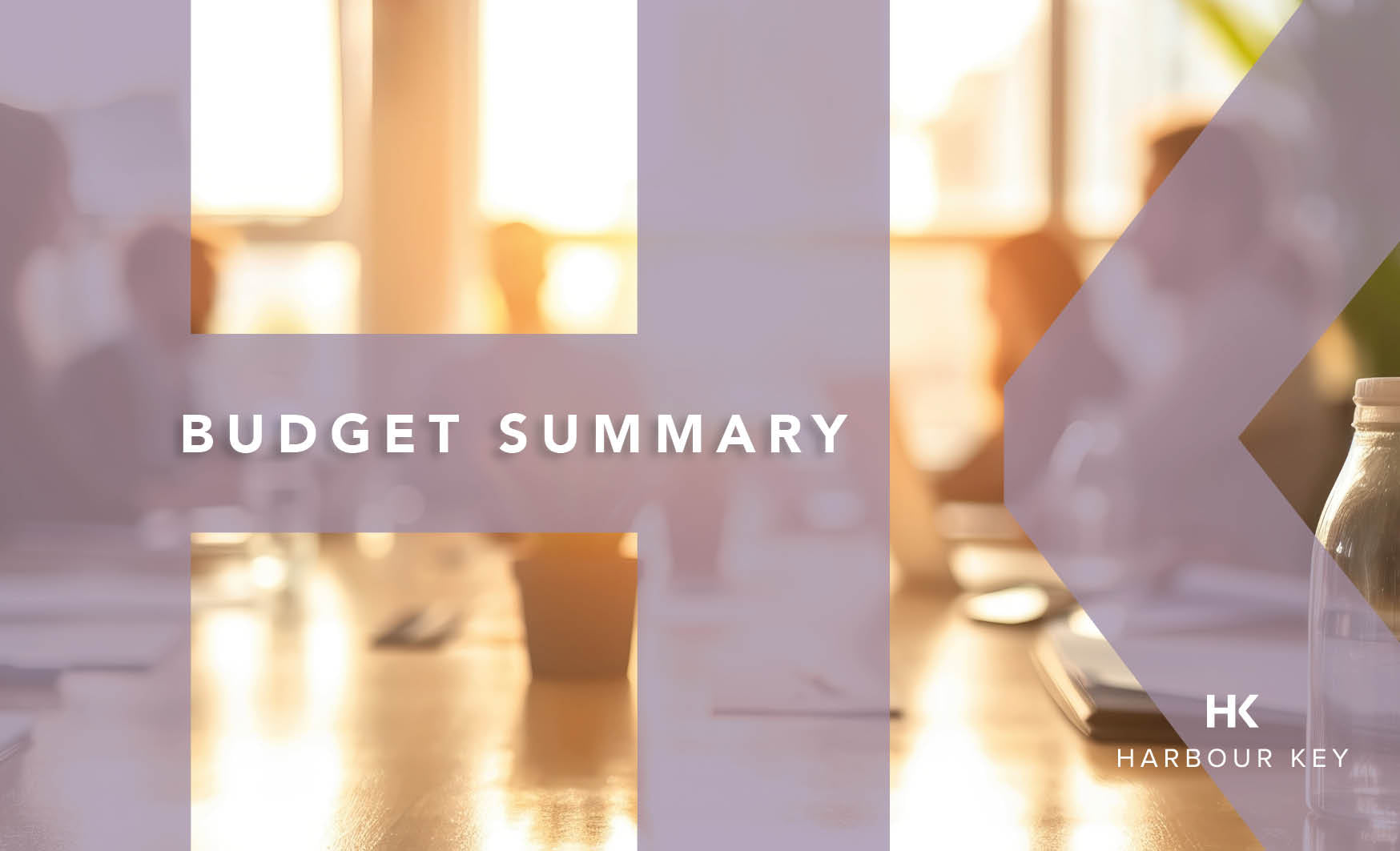
At Harbour Key, in addition to working with our clients, two organisations that we must deal with are HM Revenue & Customs (“HMRC”) and the banks. Both in recent times are causing us extra work, use of time and on occasion costs to clients, with the whole experience being frustrating. This month we look at HMRC.

Our understanding and concerns with HMRC are a lack of resource alongside pressure to reduce the tax gap. This is impacting services in certain areas and in other areas is increasing our workloads, for example the increase in the number of compliance checks/enquiries.
It is accepted that following the covid pandemic when HMRC had to deploy staff to deal with the covid support schemes, for example furlough, that other areas of their responsibilities fell behind. We are currently not seeing any improvement to their customer facing services, although we believe resources are being deployed into enquiry and enforcement teams. We are often asked by clients to chase HMRC, to say get a tax repayment sorted, however despite making a call, if answered at all, on most occasions the requested action is not taken.
Recent examples of the services provided to Harbour Key:
- Per our earlier newsletter reports, research & development tax credit claims are being thoroughly checked by HMRC due to the level of fraud that was discovered. We have only had one claim looked at and refused immediately without any correspondence, only advising the claim had been refused and why, but no support information provided. We appealed and have just received a reply after six months advising the claim is still refused, but again no supporting information as to the reason why.
- One of the teams children, who is an apprentice, received a letter from HMRC advising that their claim for tax relief for uniform expenses was being looked in to and required further information. This was news to the individual, as they had not submitted a claim, and as an apprentice did not pay tax! A reply was sent to HMRC advising this was a fraud claim, and their ID had been stolen. A reply was received by HMRC ignoring the fraud point and advising that HMRC had on file an authority form only signed by the agent, not the taxpayer, and the individual would need to deal with the firm who submitted the claim but did not give details of the firm who had submitted the claim.
In the busiest period of the tax year, HMRC announced that from Monday this week it would significantly reduce access to the self-assessment helpline, prioritising only complex queries. There is no guidance on what a complex query is, other than ‘those that cannot be easily dealt with online’, as well as supporting the small minority of callers who require extra support or cannot use online services. There was no warning of this change, with HMRC announcing only last week that from 11 December until 31 January, it will redirect the majority of callers to the self-assessment helpline to online services, telling taxpayers to find their own answers to queries about tax returns.
The sudden announcement, with only four days’ notice, follows the abrupt three-month closure of HMRC helplines over the summer and the decision that helplines would be cut by 30% by the end of 2024 to allow staff to be reallocated to roles in other parts of HMRC. In the same period last year, HMRC received 1.2 million calls, more than one fifth of the total calls received in the 12-month period.
As tax agents, we will also suffer from the service reduction, as the agent dedicated phone line that we have access to, is also to reduced, as we are advised to use online services rather than relying on the agent line to resolve problems. We only really use the phone line to chase matters up, or clear issues, generally where HMRC have not dealt with the matter, or there has been an error. We are advised that our queries that are not specifically related to tax return filing, payments or repayments that we will be redirected to alternative channels or we will be asked to call back in February!
In particular, we are not able to use the agent dedicated line to deal with any PAYE-related calls until February.
HMRC is convinced that many of the calls to the helpline are for trivial requests and said that ‘around two-thirds of calls to the SA helpline can be resolved far quicker through HMRC’s online services. To make all SA callers aware of the department’s extensive online services, recorded messages supported by SMS texts will be used’.
However, recent figures show that nearly one in five taxpayers were not satisfied with HMRC’s online services and that it is difficult to resolve complex queries online. HMRC said that most calls are about basic questions which can easily be resolved online, such as updating personal information, chasing on the progress of a registration and checking a Unique Taxpayer Reference number.
The VAT helpline was closed last year, although the online guidance still states if you can’t find the answer to your query, call the helpline!
In contrast to phone support being reduced and the delivery time on replying to post, processing repayments etc being long, HMRC have reported that they will be undertaking even more enquiry/compliance activities, on top of those we report in our newsletter on a monthly basis:
Landlords
HMRC has launched a nudge letter campaign (the letter that states we have some information on you, do you need to make a tax disclosure) targeting buy to let landlords who hold property in a limited company, which may have failed to report a Capital Gains Tax liability on their self-assessment tax returns in relation to the incorporation. HMRC said the campaign will only target ‘a small population of taxpayers who incorporated their property business in the tax year 2017/18 but reported no capital gains tax (CGT) liability on their self-assessment tax return’. The letter asks the taxpayer to check that they have correctly calculated the relief available to them when they incorporated their rental business, or if the transfer resulted in chargeable gain, as below market values used. The letter refers to some specific technical areas that may be relevant with references to HMRC guidance. Landlords who receive the letter have 30 days to respond to HMRC or expect an investigation to be opened.
Key issues to check include ensuring that the capital gain arising on incorporation was not greater than the value of the property business that was transferred.
Selling unwanted gifts post Christmas
Digital platforms like eBay, Vinted and Airbnb will have to report seller data to HMRC from January. HMRC believes there is lot of individuals trading on these platforms and not reporting their income and paying tax. For example, Vinted has over 8 million registered sellers in the UK with some users claiming they have turned selling second hand clothing into a full-time job and thanks to new information powers HMRC will start to know about that income. The digital sale platforms will have to start collecting seller data and pass that over to HMRC, who will match against taxpayers’ records to make sure people report the right information on their tax returns. The first reporting deadline for online platforms will be 31 January 2025, with fines and penalties for failing to submit reports or submitting ‘inaccurate, incomplete, unverified sellers’ records’ so the platforms will be incentivised to ensure they meet their reporting obligations. If you are an occasional seller receiving no more than £1,700 for fewer than 30 sales in a reporting period, your information is not required to be provided to HMRC. However, that doesn’t mean you do not have any tax reporting obligations.
Depending on whether you have a profit-seeking motive (for example, some online platform users buy premium items from outlets and then sell them at a profit online), the number of transactions you make, or the nature of the assets you sell, you might be seen as trading. In this case a self-assessment tax return will need to be filed with HMRC and income tax and National Insurance contributions paid accordingly. If you make sales of £1,000 or more in a year, you will need to consider whether a tax return is required.
Crypto investors
HMRC is contacting those individuals who they are aware are investing in crypto assets (see our previous article on HMRC and crypto investments https://www.harbourkey.com/blogs/articles/cryptocurrency-taxation) to voluntarily disclose unpaid tax going back four years on their cryptocurrency and non-fungible token (NFT) transactions. As well as paying the tax for any years in question, penalties and interest will be charged on all unpaid tax. HMRC has provided a penalty calculator so people can calculate the amount of interest owed and work out any penalties accumulated from the years of not paying tax on these assets. HMRC will check the disclosure and consider if the penalty applied by the taxpayer is fair. After declaring any overdue tax or charges owed, these must be paid within 30 days or HMRC will ‘take steps to recover the money’. Taxpayers will also have to disclose the reason why the tax was not paid in full, with three possible answers. These include ‘despite taking reasonable care’, ‘because you did not take care’ and ‘because it was something you did deliberately’. If reasonable care was taken, then the owed amount must go back four years. If care was not taken, six years of what is owed to HMRC must be paid and if deliberate action was taken to mislead HMRC then payment for a maximum of 20 years must be paid.
Irrespective of how your crypto has performed, it is crucial to make sure you are reporting your crypto profits/losses correctly, it is important to get the tax right.
At Budget 2023 HMRC announced that there would be greater scrutiny on the reporting of all crypto transactions, including for cryptocurrencies and non-fungible tokens (NFTs).
Non Payment of VAT
HMRC plans a letter campaign to target non-payers of VAT telling them to disclose unpaid tax dating back up to six years. The targeted letters will be sent to accountants and non-represented individuals advising them that HMRC records show that they have not paid VAT or submitted returns. If businesses do not send overdue returns and pay any VAT due, HMRC said it will “make an assessment for the VAT we estimate is due and ask you to pay that amount.” This could be more than what you owe.
Users of Money Service Businesses (”MSB”)
HMRC have commenced a nudge letter campaign directed at individuals who have used Money Service Businesses (MSBs) during the tax year ended 5 April 2023 either to send money abroad or cash cheques. The campaign is intended to be educational, informing and reminding individuals that if they have been using MSBs to send untaxed money abroad or cash cheques from untaxed income, then they need to declare this income on their Self-Assessment tax return and submit it to HMRC by 31 January 2024.
As can be seen from the recent HMRC activities announcements, all since mid-November, their enquiry/compliance activity is significantly increasing, and in the recent Autumn Statement further funding for these activities was announced.
Should anyone believe they are impacted by any of the above HMRC activities and may have to take action to rectify their tax reporting please do not hesitate to contact us. In the meantime, for those who are trying to deal with their tax affairs correctly and promptly, we would advise that if you try and call HMRC, and they refuse to deal with your query on the basis it is not a complex query (for example looking for advice on completion of your tax return) you should log the call, in case it can be used in the future to defend a penalty challenge should HMRC pick up and error in your tax return.
Next month the banks!



